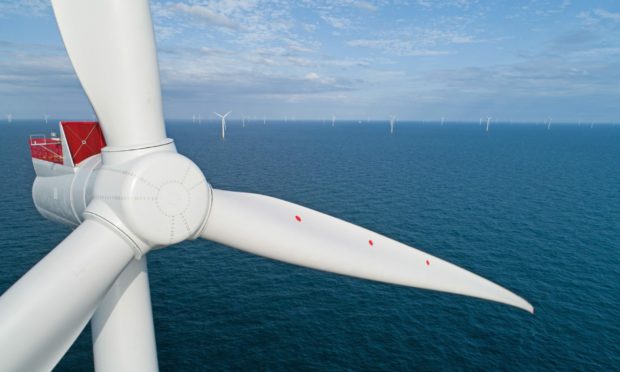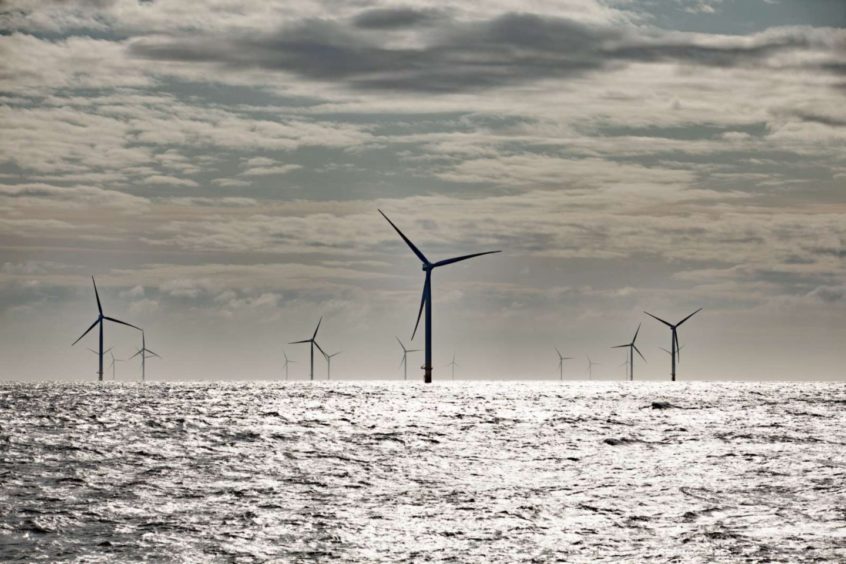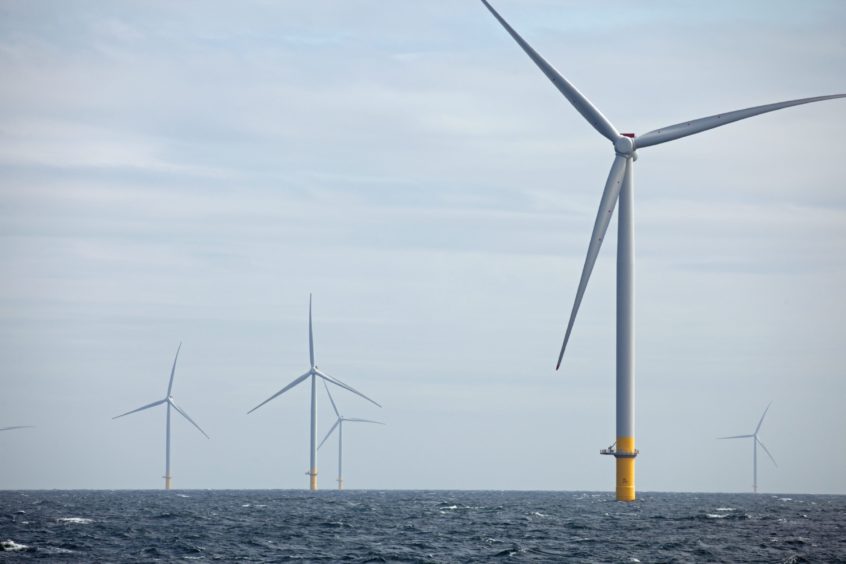Danish renewable energy giant Orsted plans to directly invest up to £12 billion in Scotland if it is successful with all five of its bids in the ScotWind offshore wind auction.
Billions more will be spent on the Scottish supply chain if Crown Estate Scotland (CES) gives the 8.8-gigawatt (GW) proposals the thumbs up, Orsted said.
It is the latest pledge of massive investment in the energy transition as ScotWind bidders battle to secure rights to develop major wind projects on the Scottish seabed.
CES aims to make initial offers to successful applicants in January of next year.
We’ve already started development works to ensure we hit the ground running – engaging with supply chain companies and the offshore wind clusters.”
Duncan Clark, Orsted Power (UK).
Orsted is involved in five bids in total, including three on its own and a further two as part of a consortium.
Its two joint bids with Spanish firm BlueFloat Energy and Italy’s Falck Renewables would deliver floating wind farms.
Orsted’s own schemes involve a mix of fixed and floating wind technologies, with the company pledging to work with Scottish ports and suppliers to develop infrastructure and a supply chain that will establish this country as “a leading player in the global offshore wind market”.
Duncan Clark, who heads up Orsted’s UK business, said Scotland “undoubtedly has some of the best offshore wind resources in the world”.
The ScotWind leasing round is a “pivotal moment” for the development of the country’s offshore wind sector, he added.
He said the auction paved the way for Scotland to make the most of its “superb offshore wind potential, and world-leading offshore engineering and contracting capabilities”, while also unlocking investment that will create jobs and opportunities for Scottish businesses for generations.
Mr Clark added: “Orsted is the global leader in developing, constructing, and operating offshore wind farms.
“On the road to becoming the global leader we have gained deep experience in the unique skill-sets required for consenting and constructing offshore wind farms and have a proven track record of delivering on time and on budget.
“In building and equipping our teams in Scotland, we will use this experience to deliver large-scale projects into operation by 2030 in line with the Scottish Government’s target of 11GW of installed offshore wind by this date.
“We’ve already started development works to ensure we hit the ground running – engaging with supply chain companies and the offshore wind clusters.
Mr Clark said Orsted’s bosses were “extremely encouraged by the conversations we’ve had to date” in terms of the supply chain.
Copenhagen-listed Orsted is one of the world’s largest renewable energy companies.
It says it is the global leader in offshore wind, with 27 sites in operation across Europe, the US and the Asia Pacific region.
The firm’s UK business added five onshore wind farms under development in Scotland through an acquisition earlier this year.
Other projects include Hornsea 2, off the Yorkshire coast, which will be the world’s largest operational offshore wind farm when it is fully commissioned next year.
Global ambition
Explaining why Orsted was prepared to invest so heavily in developing and constructing offshore wind farms in Scotland over the next 10 years, chief commercial officer Martin Neubert said: “We have recently set out our aspiration to become the world’s leading green energy major by 2030.
“Orsted has the largest development pipeline in the offshore wind industry and it’s our clear ambition to remain the global market leader in offshore wind.
“We committed to these ambitious plans for the ScotWind leasing round not only because Scotland can play a key role in achieving our aspiration but because we firmly believe our scale and experience in offshore wind puts us in a unique position to help Scotland transition to a low carbon economy as quickly as possible.”
Mr Neubert added: “We believe our bids represent a significant contribution to achieving Scotland’s ambitious climate change targets and will underpin the country’s renewable energy economy for generations.”
Orsted also plans to develop renewable hydrogen projects in Scotland using some of the electricity from the proposed offshore wind farms.
The company has hydrogen projects elsewhere in the UK and mainland Europe to help replace fossil fuels in the maritime, aviation, heavy road transport, refinery and steel sectors.
Orsted said it was now looking forward to helping Scotland benefit from an industry that by 2045 could be worth up to £25 bn a year to the country’s economy.
Developing new technologies is key to north-east’s net-zero future




